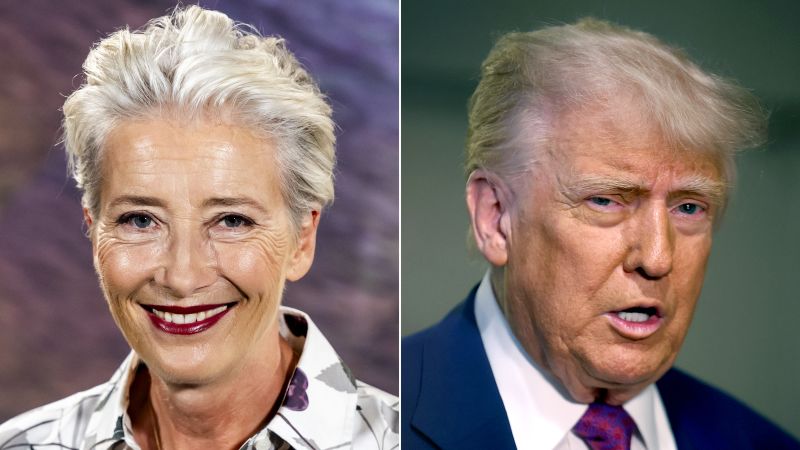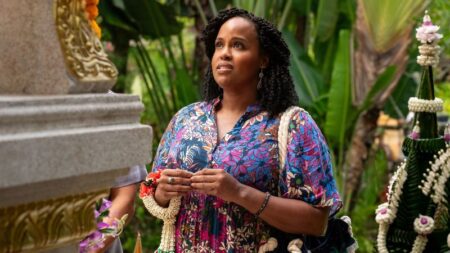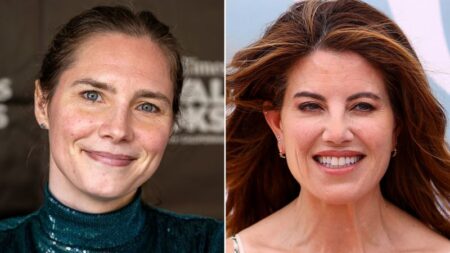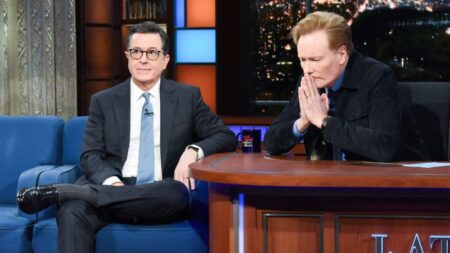Emma Thompson, the renowned British actress, recently recounted a surprising anecdote involving an unexpected phone call from former President Donald Trump during a speech at the Locarno Film Festival in Switzerland. Thompson, who was honored with the prestigious Leopard Club award at the festival, took the opportunity to share a peculiar moment from her past that took place around 1997, a time before Trump became a household name in politics and during her filming of the movie “Primary Colors.”
“Primary Colors” is a political satire that loosely narrates the rise of Bill Clinton, based on the book by Joe Klein. This context is essential as it frames Thompson’s anecdote—an event that juxtaposes her foray into the political realm with a personal encounter with Trump. As she recalled, the setting was her on-set trailer where she was in the throes of filming. It was then that her phone rang, and to her astonishment, the caller was none other than Donald Trump.
Thompson humorously confessed to the audience that upon answering the phone, she initially thought it might be a prank. “I thought it was a joke and asked: ‘How can I help you?’ Perhaps he needed directions from someone,” she remarked, reflecting on the surreal nature of the encounter. However, what followed was a genuine invitation from Trump, who expressed interest in making arrangements for her to visit one of his luxurious establishments, suggesting, “I’d love you to come and stay at one of my beautiful places. Maybe we could have dinner.”
In a light-hearted manner, Thompson recalled her response, thanking Trump for his invitation while suggesting she would get back to him. Remarkably, Thompson had a personal epiphany shortly after the conversation, as she realized that it was the very day her divorce decree had been finalized from her first husband, fellow actor Kenneth Branagh.
“I realized my divorce decree had come through that day,” Thompson noted, injecting humor into the moment. She speculated playfully, “I bet he’s got people looking for a nice divorcee to take out on his arm,” emphasizing the uncanny timing of her newfound availability as a single woman.
This enchanting story is not novel to Thompson; she has shared this anecdote before, most notably during her appearance on “The Graham Norton Show” in 2017. During that segment, she once again recounted the invitation from Trump, leaving viewers both intrigued and entertained. In her characteristic witty style, Thompson quipped, “I could have changed the course of history,” implying that a dinner with Trump, however casual, might have had a significant impact on both their lives—and perhaps even the political landscape.
Thompson’s recounting of this phone call with Donald Trump serves not merely as an amusing story but as a reminder of the unexpected intersections between personal lives and public personas. It encapsulates the unpredictable nature of fame and how two individuals, from completely different spectrums of the entertainment and political worlds, can find themselves in a whimsical moment of connection.
In summary, the tale sheds light on the intricacies of celebrity culture, human interactions, and how events, seemingly insignificant at the time, can become stories worth telling—and retelling—in the years that follow. Thompson, with her sharp humor and reflective spirit, transforms what could have been an ordinary phone call into an engaging narrative that continues to captivate audiences.











